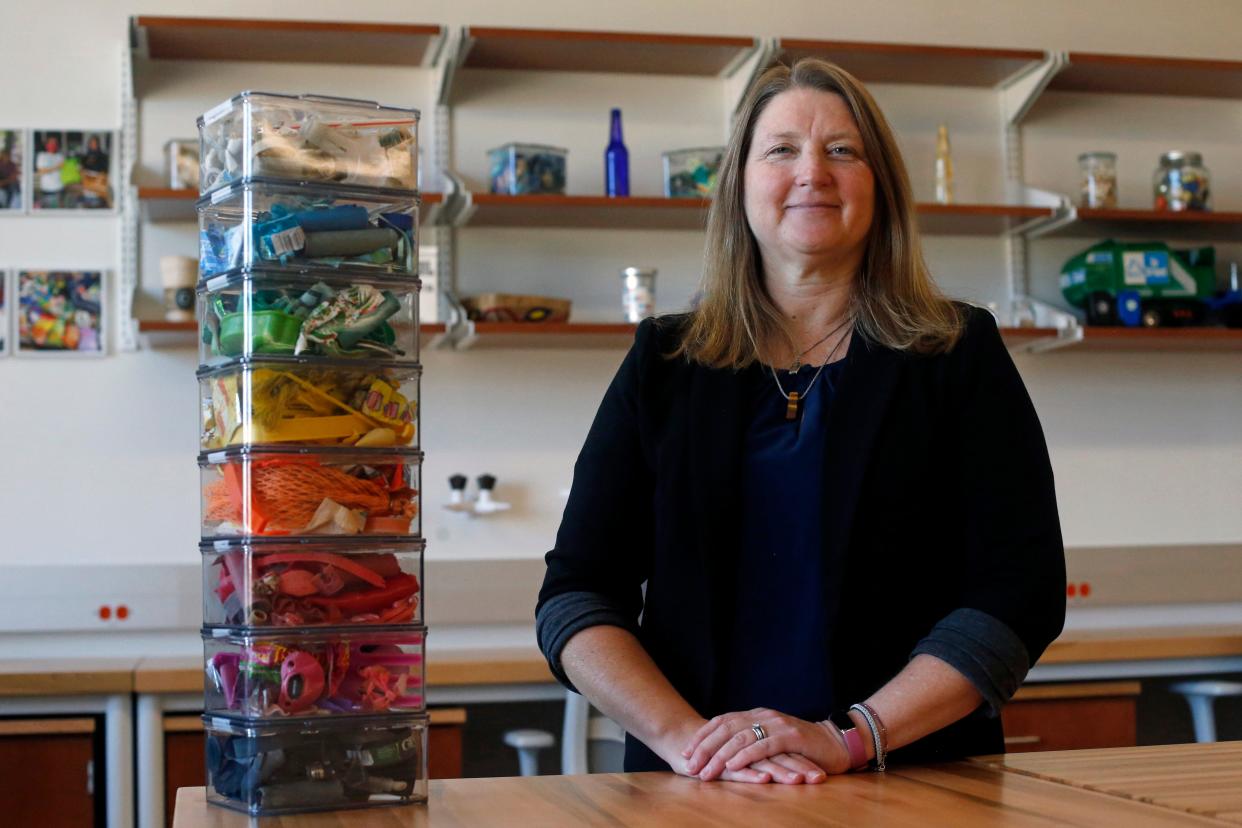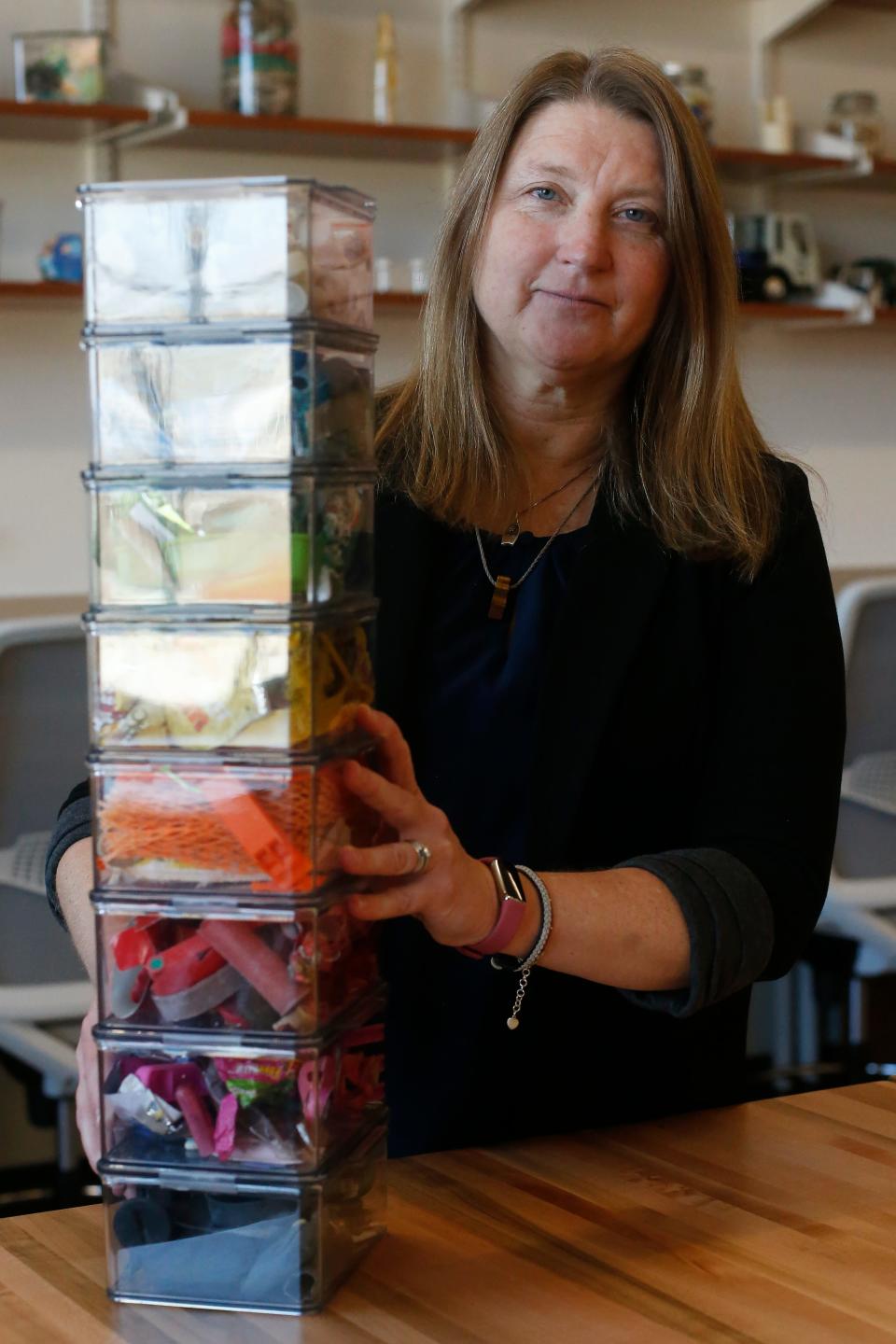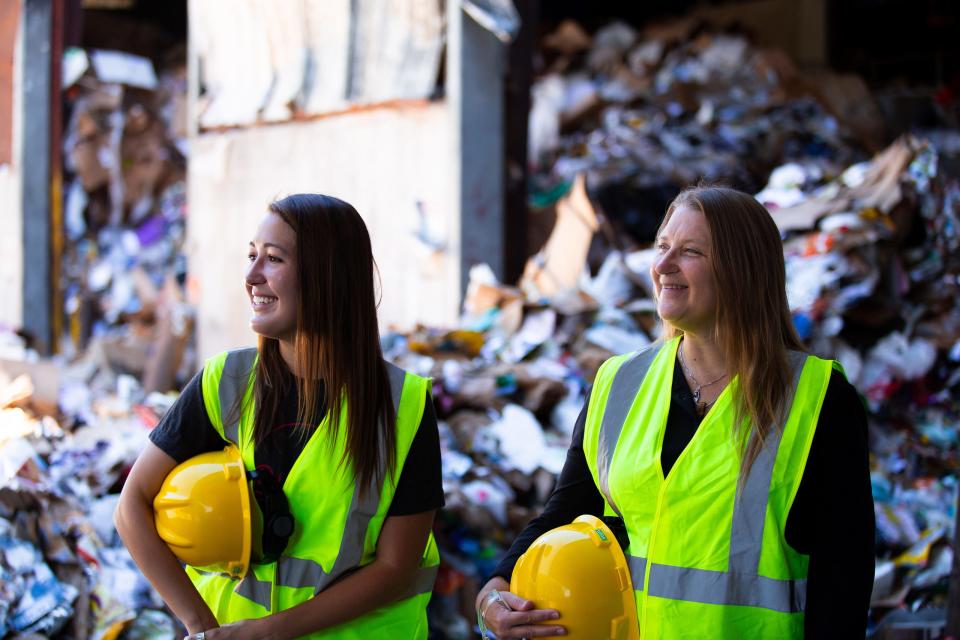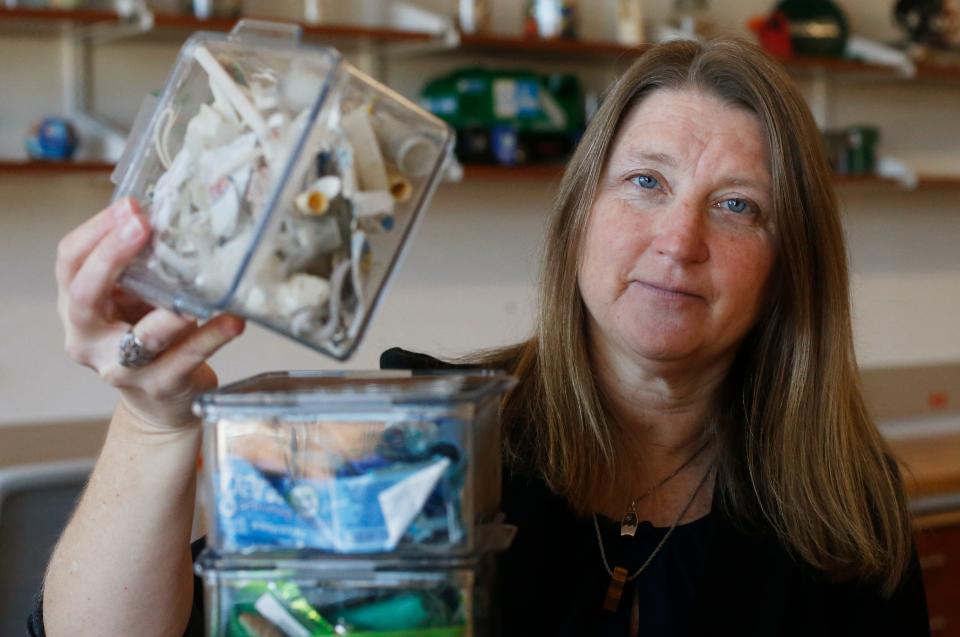How a UGA professor is leading research on the plastic pollution crisis from source to sea

Jenna Jambeck is one of USA TODAY’s Women of the Year, a recognition of women who have made a significant impact in their communities and across the country. The program launched in 2022 as a continuation of Women of the Century, which commemorated the 100th anniversary of women gaining the right to vote. Meet this year’s honorees at womenoftheyear.usatoday.com.
Correction: This article has been updated to reflect the destination of Jambeck's sailboat trip to Martinique.
Scientists are usually not squeamish by practice, but Jenna Jambeck has a special appreciation for garbage.
Jambeck is a Ph.D. environmental engineer at the University of Georgia researching where plastic pollution comes from and how it ends up in the world's oceans to tackle the pollution crisis.
In 2010, Jambeck co-founded the Marine Debris Tracker with Kyle Johnson. Supported by the National Oceanic and Atmospheric Administration's Marine Debris Program, the tracker is an app that crowdsources data on pollution and shares that as open data. And in 2015, she published a paper calculating for the first time ever the quantity of plastic pollution in the world's oceans, estimating a gobsmacking 275 million metric tons of plastic as of 2010.
She said she knew she made it big with that number when The Onion parodied the dour news.
In 2018, the statistic was named the International Statistic of the Year by the Royal Statistical Society, and in that study, Jambeck and her team discovered that 90% of plastic has never been recycled, further helping the world understand the magnitude of the plastic problem.
Since then, she's continued exploring marine debris whether by tracking litter on the Mississippi River in a camper with her family in 2021 or inviting guests onto her podcast to talk trash. In late 2022, she was awarded a MacArthur Fellowship Grant, famously known as the Genius Grant, for her work.
Jambeck is USA TODAY's Women of the Year honoree from Georgia.
"We have designed as environmental engineers these amazing systems where you can just put something in a bin and take it to your curb and it disappears, and you can do that over and over," Jambeck said.
A connoisseur of the discarded, Jambeck spoke with USA TODAY about harnessing a steadfast optimism in her work, being a woman and a mother in her field, and the ability to engineer solutions to complex, worldwide problems through collaboration and community.
This conversation has been edited for length and clarity.

Who did you look up to in becoming a scientist and a researcher?
The things that come to mind are sort of an amalgamation of lots of people, right?
For me, I knew that I wanted to have a family and have that be a big part of my life. But I really did want to be a scientist and researcher at the same time. I can think of the moment where I was like, "Oh wow, I can do this." ... It was when I read "A Wrinkle in Time," and I loved all of Madeleine L'Engle's books. ... She often wrote about scientists and doing research and experiments, and I just ate it up.
When I was reading "A Wrinkle in Time" and the kids had gone through a tesseract and they're in a different space or time, and they're with one of the Whats-Its. They're worried about their mom, and they look inside a crystal ball (or whatever it was) and they saw their mom. She was in the lab which was connected to their house, and she was stirring their dinner, which was like stew, over the Bunsen burner in her lab. Which is totally a health and safety violation! I totally identified with the mom because she made me think, "Wow, you could just combine that." In my head, I had kept being a mother and being a scientist completely separate.
What was your most challenging experience?
Maybe the hardest thing I accomplished was the sailboat that went to Martinique, sailing across the ocean in 2014 with 13 other women doing my first sampling in the ocean for plastics. It was definitely the hardest, kind of like the perfect storm of all the things that I was working on, to publish the paper that I was working on. I went on this journey when my kids were three and six. I told my husband about the opportunity and he was so supportive, everyone was, but I just didn't realize how hard it was going to be.
It was humbling and empowering at the same time because I made it through and I felt like I can almost do anything, like nothing (else) is going to be that hard in terms of traveling and dedicating my life to this issue.

Have there been any moments that caused you to change how you conduct scientific research?
When our paper in "Science" came out in 2015, I knew that number − the tons of waste in the ocean − that hadn't been calculated before was going to get a lot of attention. I do have a mission to be very transparent, so we had the spreadsheet out there of all the countries and their data, and I just wanted to be really clear about the steps in the model.
That also means that people can take the data and do whatever they want with it. There was a table that had the top 20 countries. The big question was very much what did these countries have in common?
I was talking about how the U.S. is a high-income country yet we're on this table.
Now, a lot of my work is very much in collaboration with other people and so I try to bring in as many different perspectives as I can because I don't know everything.
How do you overcome adversity?
I don't necessarily take doors closing or obstacles as end-all-be-alls. I think about different ways of doing things. I think persistence is how I overcome adversity − and creativity.
It hasn't always been easy being a woman in engineering ... in a lot of cases it's not malicious intent by men in the workplace, but there would be things that if you're not a woman, you're not going to have the perspective of noticing what might be needed. If you're breastfeeding a kid that needs to eat every two to four hours. You're gonna work differently than the guy who's in the office from nine to five.

What advice would you give your younger self?
Stay true to you and be authentic in yourself and what you do. It's cheesy, but then success will come. At least that's an easy win because you're not always going to "win the thing." I've had hundreds of proposals and papers rejected, and I just had another one of my papers rejected. As long as you have stayed true to yourself, then you're always winning in that sense, so you can easily pick yourself up from other adversity and losses.
That doesn't also mean that you don't change, because I take in a lot of new information I've learned about how to be more inclusive and how to do research in a thoughtful and context-sensitive way.
2022 Women of the Year: Founder of Food Love program finds way to solve hunger across country one meal at a time
Women of the Century: Girl Scouts founder Juliette Gordon Low, novelist Alice Walker on Georgia Women of the Century list
This article originally appeared on Savannah Morning News: UGA professor, MacArthur Genius Grant recipient honored by USA TODAY

